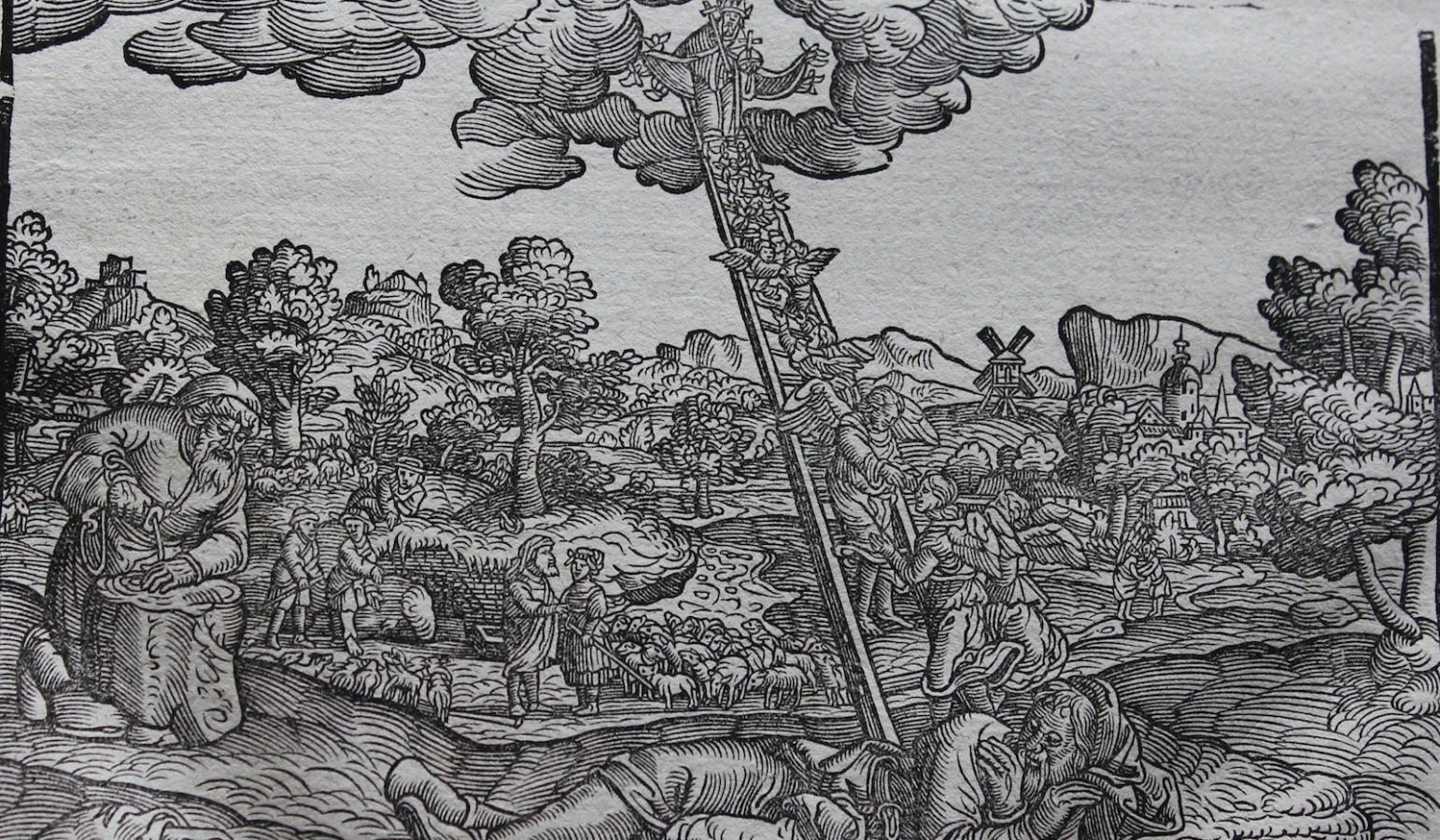Commentary on Parashat Vayetzei, Genesis 28:10-32:3
Jacob runs for his life, fleeing the fury of the brother from whom he has stolen the patriarchal blessing and the father he has deceived. He stops for the night, for the sun is setting. The next day he will cross over into another land, a new family and a world that knows nothing of a covenant with God.
Jacob has reached the borders of his life with no assurance that the blessings of power, wealth and progeny he has received from his father, Isaac, will ever be fulfilled. Jacob dreams of a ladder to heaven with angels ascending and descending. He envisions God at his side, renewing the covenant made with his father Isaac, and grandfather, Abraham:
For You and Your Descendants
The ground upon which you lie I will give you and your descendants. Your progeny shall be as the dust of the earth, spreading out to the west and the east, to the north and south. All the families of the earth will bless themselves through you and your descendants (Genesis 28:14).
Jacob awakens from his sleep and says: “Surely there is God in this place and I did not know.” What is it that he did not know? Two Hasidic masters provide contrary yet equally remarkable insight for us. Each responds to Jacob’s confusion over God’s presence.
With your help, My Jewish Learning can provide endless opportunities for learning, connection and discovery.
One explains the place where God was found was in the “I”–the self of Jacob. Consumed with anger, fear and deceit, Jacob suddenly becomes aware of the potential divinity with himself, the place where God can reside.
The second intuits the opposite. At the very moment that Jacob becomes aware of God’s presence, he exclaims: It is “I” (the self) that I do not know.” Only when I am not filled with myself, when I empty myself of the ego and self-serving explanations that encrust me, can I truly experience God’s presence. Both remind us how ever-present God can be and how easy it is to say “But I did not know.”
Provided by CLAL: The National Jewish Center for Learning and Leadership, a multi-denominational think tank and resource center.



